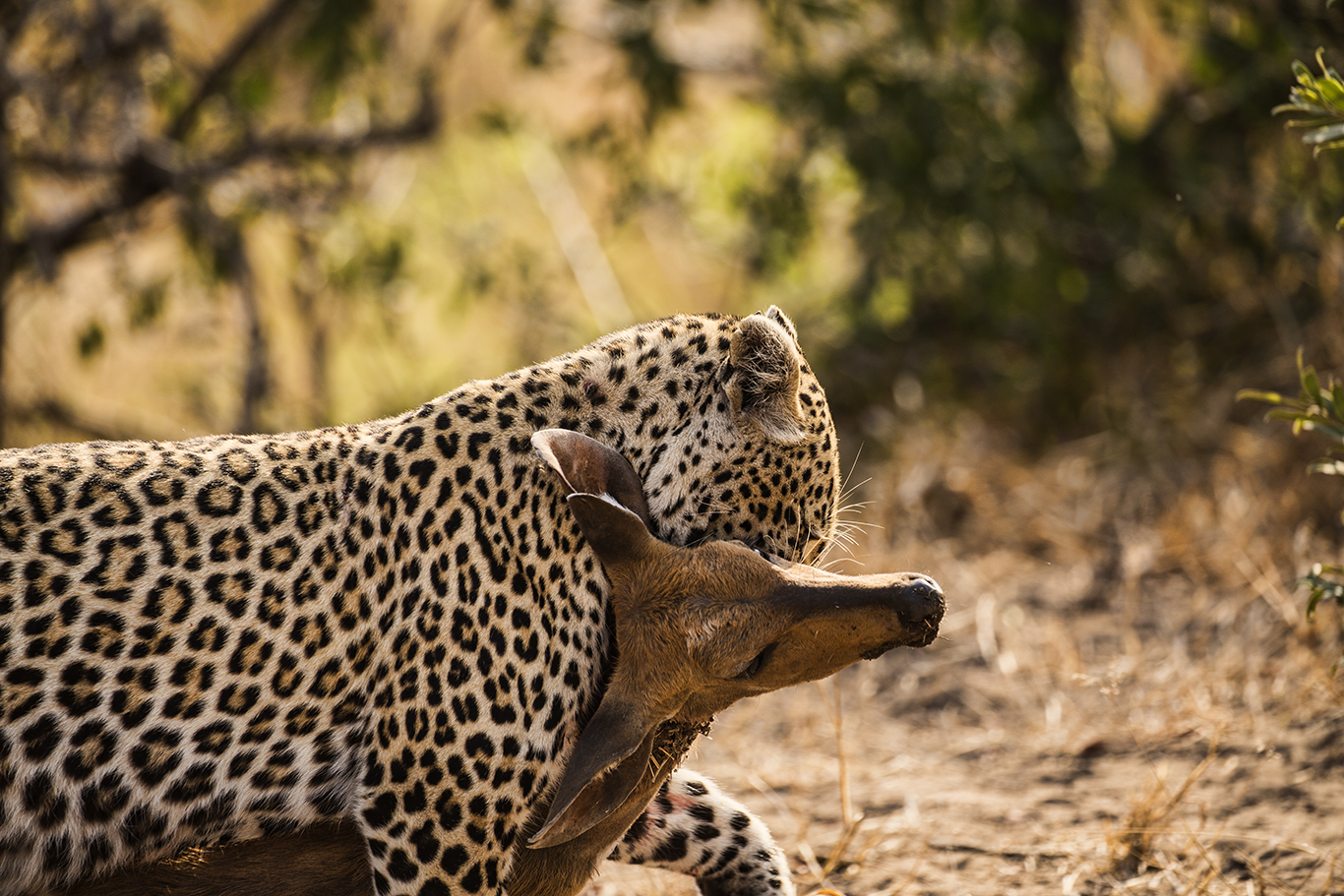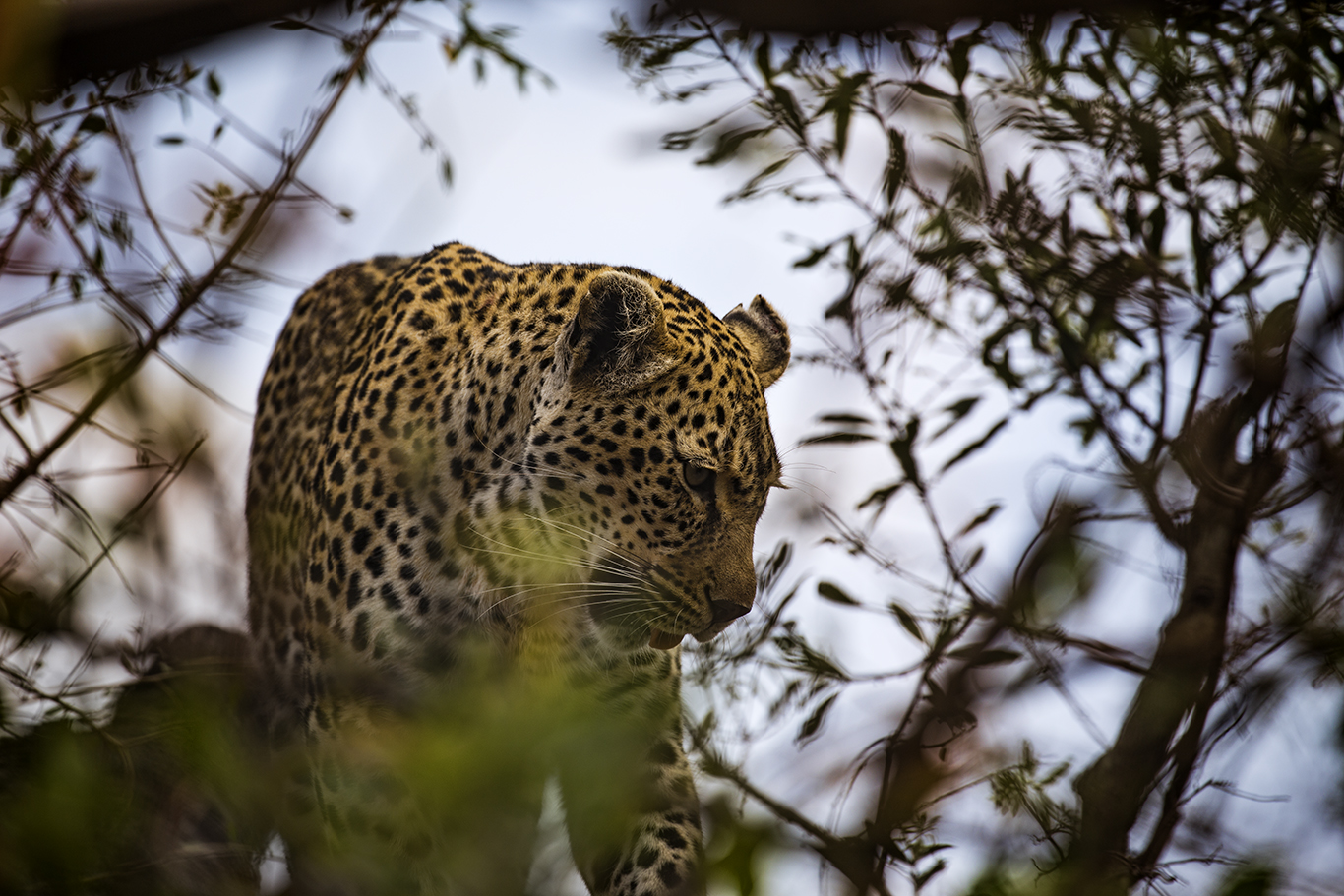We’re cruising down one of the main trails early in the morning in Kruger National Park. On game drives thus far, all of the big five have been seen and photographed. What I’ve started to realize, however, is that no two excursions are the same around here.
After a ten minute delay, while a herd of Cape Buffalo trudges across the path in front of us, we proceed on for about another fifteen minutes. Then without speaking, Jophet, our tracker, raises his arm indicating that Matt, our guide and driver, should stop our jeep. Pointing to our right in plain sight are two male lions sprawled out under several trees. One has his eyes open while the other appears to be sleeping. It is early in the morning and not that hot yet. What is with this behavior?
The answer to this question lies about two hundred yards west of our current location. Our awake male lion slowly rises and begins to saunter to a nearby open area. Keeping very quiet, Matt starts the Jeep and follows the lion maintaining a safe distance. Within a matter of minutes, the lion stops and stares. He sets his sight on a group of vultures in the process of decimating the remains of a warthog kill. The vultures catch a glimpse of the lion, and within seconds fly speedily to a nearby tree.
Matt explains to us the likely chain of events that clarifies what we have seen. He points to a mid-size hole in the ground, the presumed site in which the lions attacked and killed a warthog. The lions must have devoured the majority of the warthog, and then laid down to digest their meal in the opening where we first saw them. The vultures were taking care of the remains; the parts of the warthog the lions felt were not worth eating.
There is no question that lions are king around here in Kruger National Park. Vultures are scavengers and quite ugly in my opinion. Warthogs appear to me to be sitting ducks, wondering when they will become someone’s morning meal.





